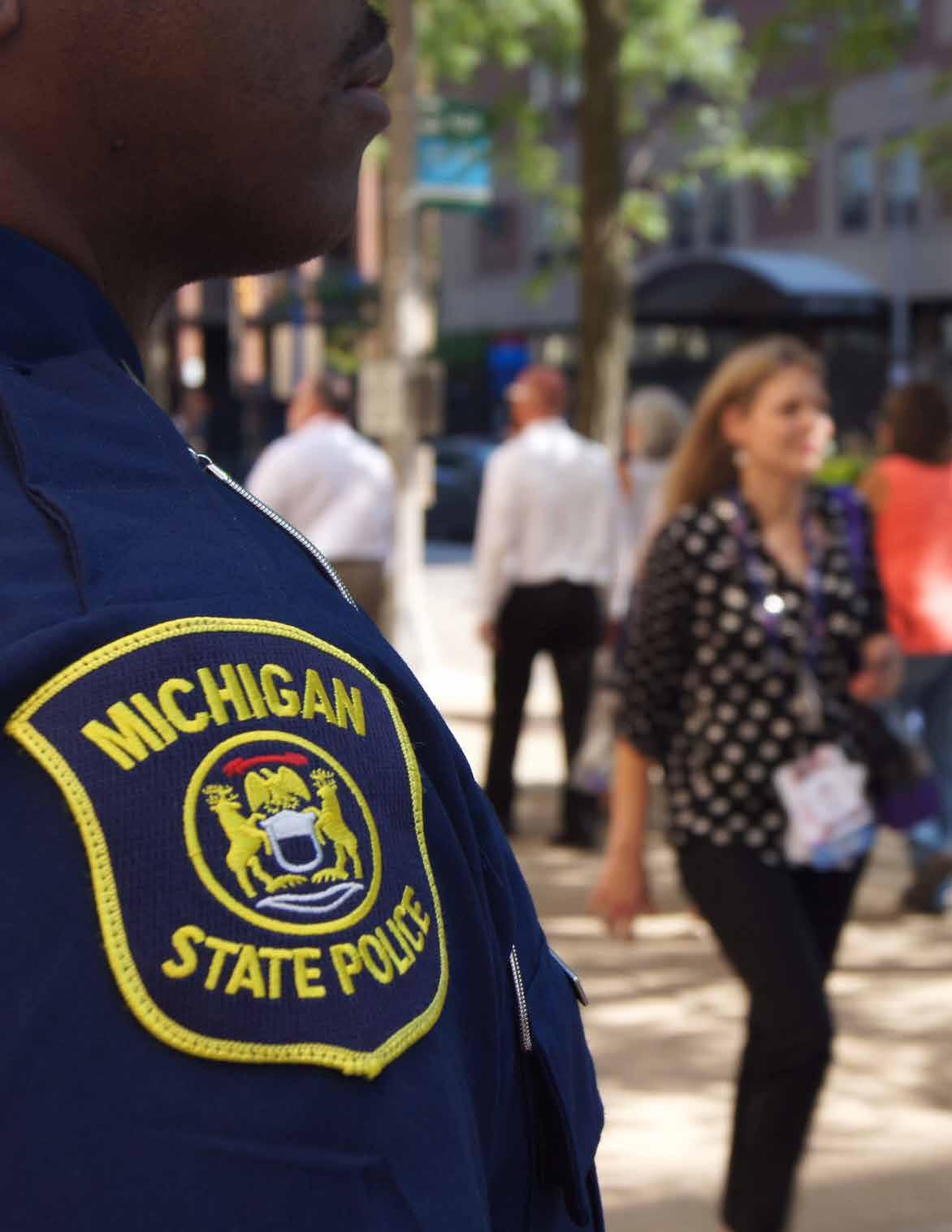
11 minute read
A Courageous Conversation
CONVERSATION
We’ve all heard it; we’ve all said it: 2020 has been a year like no other. Together, we’ve faced a pandemic, stressed over our finances and jobs, worried about our children’s education, listened to our leaders play the blame game instead of uniting for the citizens' benefit, and watched in horror as cities burned and families wept. For many Black Americans, 2020 has been a year like every other. Black Americans and other marginalized citizens routinely face health crises and lack access to quality health care. They earn less pay while doing the same job as their white peers. They fret over the lack of qualified teachers and educational resources in their local schools. They feel betrayed by public officials who make promises that are not kept. They experience racial slurs, derogatory comments, threats, physical brutality and murder. 2020 is nothing new for many Black Americans; it’s merely the year it all came to a head. “Systemic racism, discrimination and prejudice are all deeply rooted in our country. Institutional racial oppression of people of color has been part of our country since the beginning of slavery,” said Linda Logan, Ph.D., vice president and chief inclusion officer at Olivet College. “Most K-12 education does not include these topics in the curriculum. Until it is addressed without a revisional version of history, it is not likely the reality of the country’s understanding of systemic racism, discrimination and prejudice will advance.”
It’s Time for a Courageous Conversation
Dr. Logan said the Olivet community endeavors to subscribe to the seven tenants of the College Compact, particularly the core value of treating one another with respect. “The students, faculty and staff strive to create a vibrant community that respects our differences and embraces our similarities. However, that doesn’t mean we’re perfect. We have room for improvement.” Courageous conversations about race, equity, inclusion and parity are required for the College to fulfill its mission of helping students maximize their human potential while minimizing barriers. However, there must be an openness to learn and an atmosphere of trust and respect. “Individuals must be encouraged to express their views openly and truthfully, rather than defensively or by laying blame, and that takes courage,” Dr. Logan said. “The students, faculty and staff strive to create a vibrant community that respects our differences and embraces our similarities. However, that doesn’t mean we’re perfect. We have room for improvement.” — Linda Logan, Ph.D., Vice President and Chief Inclusion Officer
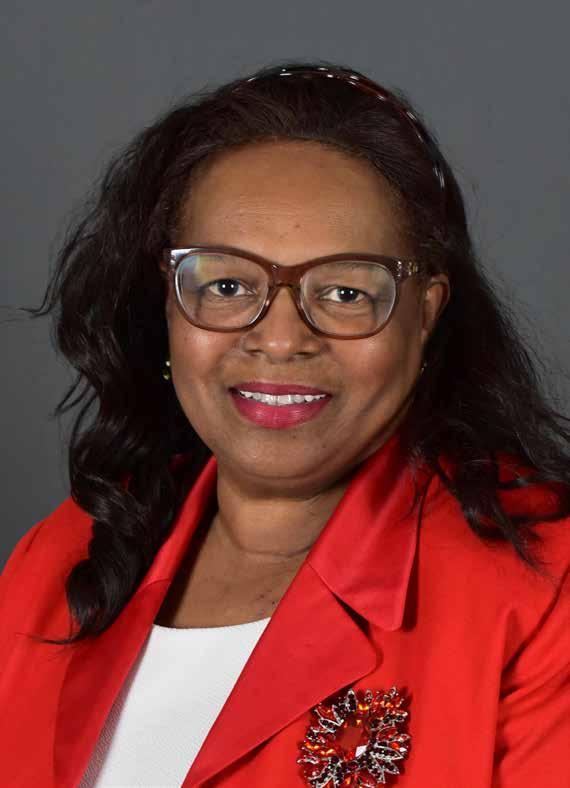
Diversity and Inclusion
In 2013, Olivet College defined diversity as a representation of students, faculty and staff of different races, nationalities, genders, sexual orientations, ages, gender expressions, religions and disabilities. Inclusion welcomes, respects and values all people in activities and processes on an equal basis, especially those who are marginalized. Overall, the 2019 Olivet College Climate Survey reports that both students and employees believe the College is committed to diversity and inclusion. “They feel everyone has an equal chance at success, feel the College is supportive, helpful and flexible, and feel personally welcome,” Dr. Logan said. “People of color and women have been welcome, and more importantly, have felt welcome, at the College since its founding in 1844. That says a lot about our campus community and our commitment to inclusion and diversity.” Sidney McIntosh, president of the Black Student Union (BSU), agrees that the College embraces diversity and inclusion. “I’ve seen professors wearing shirts and having signs in their offices in support of diversity and inclusion. They also discuss issues with us, which is great. It shows they support us and know that change is needed in society. It makes being a student here even more special.” However, the Climate Survey reported that first-year minority students and women experience more negative experiences. Any negative incident is unacceptable and addressed. Incidents reported in the 2019 Climate Survey are defined as “low-level,” such as negative comments or unwanted jokes. “Self and Community” is a required course for all first-year students and explores several potentially divisive topics, including privilege, race, sexual orientation and citizenship. “The voices and experiences of minorities, the differently-abled, individuals from working-class and lower-income backgrounds, foreigners and members of the LGBTQIA+ community allow students to connect with assignments and relate to the authors and creators. Self and Community creates an equitable, engaging learning environment for all first-year students,” explained Joey Shepherd, academic accommodations coordinator.
Equal is Not Always Equitable, and That’s Not Fair
Fundamental to diversity and inclusion is the understanding of equity. Treating people equally is not the same as treating them equitably. Therein lies the problem and controversy. Equity is fairness and justice. It recognizes that differences exist and efforts must be made to counteract those differences. People are treated fairly while acknowledging their needs and circumstances, such as accessibility or accommodations. On the other hand, equality means everyone is treated the same with no consideration of individual differences. “Equality is welcoming all people to Olivet College, regardless of race, sex, nationality, disability, age or religion. Assume we welcome a sight-impaired student; that’s equality,” Dr. Logan explained. “But, if we do not accommodate the student’s unique learning, health and safety needs, we are not treating that student equitably. Does the student have the resources to audio record lectures? Are classrooms marked in Braille so the student can find the correct room? Are sidewalks free of obstructions and can the student safety cross our streets? Are the food stations in the dining hall manageable? Is a professor willing to make accommodations for the student for test-taking? You cannot have equality if you don’t first have equity.” Olivet’s gender-inclusive housing that was created in 2018 to support students who identify as nonbinary is an example of equity. While all students are offered housing, gender-inclusive housing provides a welcome living experience for students of all gender identities and expressions. “One key tenant of genderinclusive housing is students who have a safe place to reside on campus are more likely to feel welcomed and supported in the Olivet community,” Shepherd said. “Without gender-inclusive housing, the College would be excluding students who do not identify as male or female and other students who identify as members of the LGBTQIA+ community.”
Black Lives Matter
Countering inequities is at the heart of the phrase “Black Lives Matter.” While some may not agree with the Black Lives Matter Global Network Foundation’s entire platform, we as Olivetians should agree that striving for justice, fairness and equity is something to stand up for. Jamal Al-Uqhah, a BSU member, said, “Black Lives Matter means we matter and want to show others that we matter by making a change to all the injustice so that we have an equal playing field. Everyone in this country is not equal.” McIntosh agreed. “We are the same on the inside, but people still look at the skin color and feel threatened.”

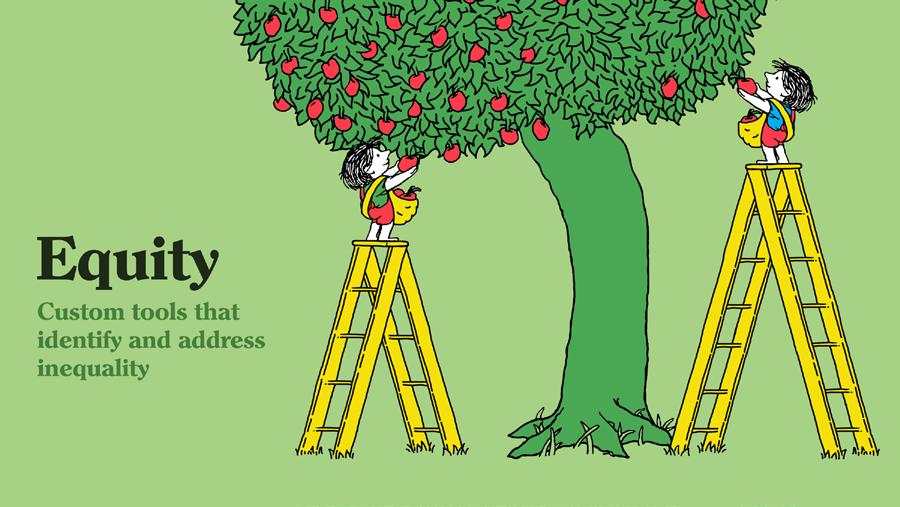
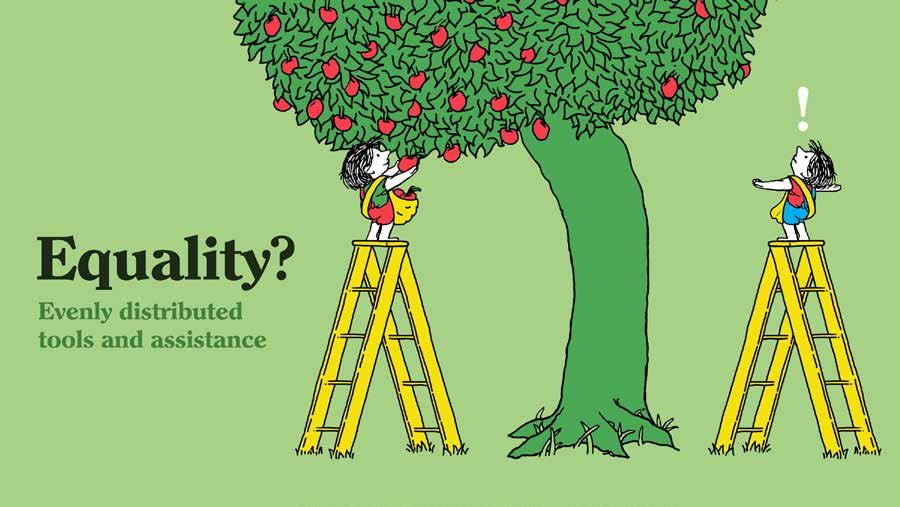
BSU and Alpha Xi Omega (ELITE) partnered to organize a Black Lives Matter event on the Olivet College campus in October. “It felt right to take a stand. We wanted to show students that Olivet is a safe place and, together, we are going to fight social injustice,” McIntosh said. “We know this issue is important and we wanted to allow other students to participate. Many members of BSU have shared that they have experienced discrimination in their lives. We wanted to fight against that and spread awareness, as well as help students use their voices for good.” Taytum Myers, a member of BSU, explained that while she and many other students of color feel safe at Olivet and have not experienced discrimination while on campus, racism and social injustice are real. “There are problems everywhere, not just in big cities. We feel the pain of others that have been hurt through discrimination, and yes, we have experienced it in our lives. It needs to stop. Even though we are a small group of people at a small college, we still need to be heard and seen.” “Standing up for what you believe in isn’t scary. It’s necessary,” added Al-Uqhah. “The scary thing is how innocent Black people are dying at the hands of police officers and seeing all that has taken place across the country in 2020. BSU and ELITE felt we could do our part by bringing awareness right here in Olivet through a peaceful event.”
How Would You Feel?
Imagine having to have “The Talk” with your children. The Talk is an expression for the conversation most Black parents have with their children about the dangers they may face because of the color of their skin. It’s a list of do’s and don’ts on how to behave in the presence of white people, particularly police officers: Don’t look angry. Do look happy. Don’t wear dirty work clothes in public. Do carry a receipt in your hand when you leave a store. Don’t wear a hoodie. Do say “yes sir” and “yes ma’am,” particularly when interacting with law enforcement. Don’t drive in certain neighborhoods. Do clearly state that your wallet is in your back pocket or purse and you need to pull it out. The list goes on. “How would you feel if you were the one going through this?” Myers asked. McIntosh added, “The world is much bigger than the towns and cities people grow up in. We need to come together and fight for Black lives because no one should be denied a job, looked at differently, worry about health care, or miss out on opportunities all because of the color of their skin. We need to stand together.”
We’re Keeping Score
From its inception, the mission of Olivet College has been “to do good to our students, by placing in their hands the means of intellectual, moral and spiritual improvement, and to teach them the divine art and science of doing good to others,” regardless of gender, race or financial means. This remarkable principle remains our guidepost today. “It’s important to remember that reciting a mission is different than living a mission,” Dr. Logan said. “Olivet College must live its mission every day if we are to continue to transform the lives of the students who put their trust in us. In my role as chief inclusion officer, my goal is to determine our scorecard on inclusion and diversity.” By documenting all diversity and inclusion efforts across campus, including those under the radar, Dr. Logan will develop a clear picture of achievements and areas that need attention. Dr. Logan added that continued meaningful diversity, inclusion and cultural competency training for faculty, staff and students are also crucial. McIntosh, Myers and Al-Uqhah believe more opportunities to talk about inclusion and diversity will benefit the Olivet community, such as making the topic a mandatory part of weekly academic seminars. Shepherd added that providing more gender-neutral private restrooms and making the campus more accessible for individuals who are not ablebodied, such as elevators and ramps in each building, would address other inclusion barriers. To help in these efforts, the College is creating an advisory council comprised of students, faculty, staff, alumni, community members and corporations. With 29% of the College’s fall 2020 students identifying as a minority (one of the highest percentages among colleges in Michigan), Dr. Logan said that it is essential to acknowledge that, overall, Olivet College has a strong, healthy, diverse and inclusive college community. “We are not exempt from the issues plaguing our country. We do not live in a perfect world and there are differences that need closer examination. If anyone is up to the task, it is our Olivet College community.” Al-Uqhah reminds us that we must all take responsibility to work toward and ensure justice and fairness for all. “The responsibility people have, regardless of if the issues affect them directly, is to acknowledge that issues exist. Don’t ignore it. Don’t say it’s not happening. Don’t say it has nothing to do with you, because someway, somehow it does. All you have to do is try to understand, learn and open your eyes. Then, help educate someone else.”
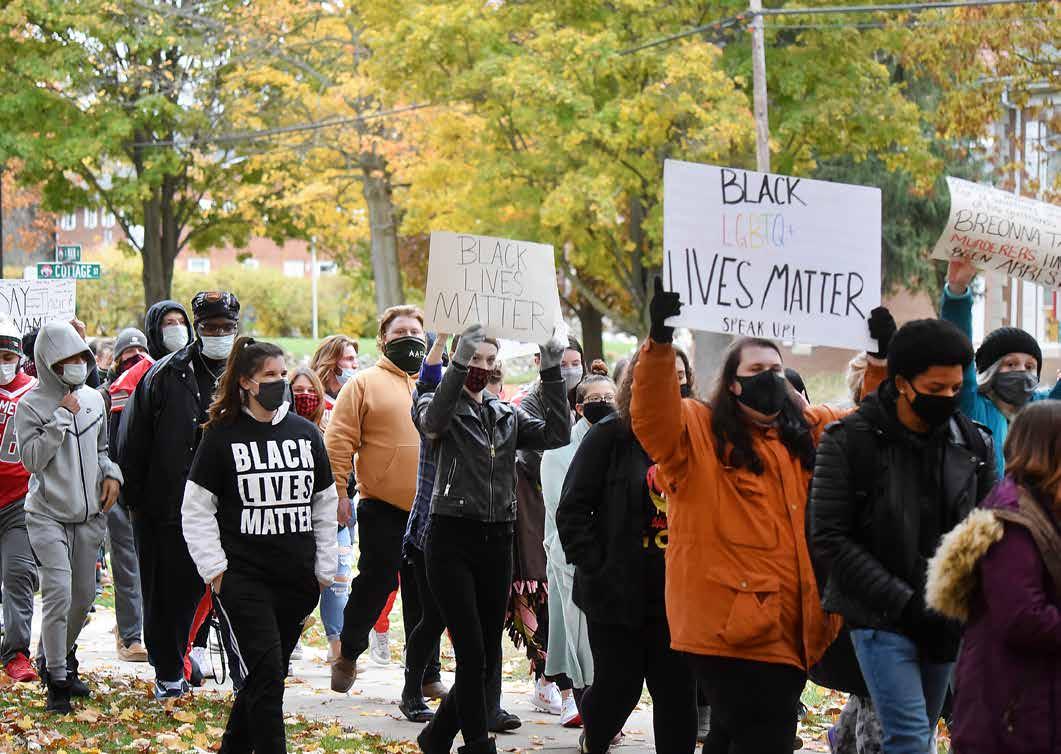
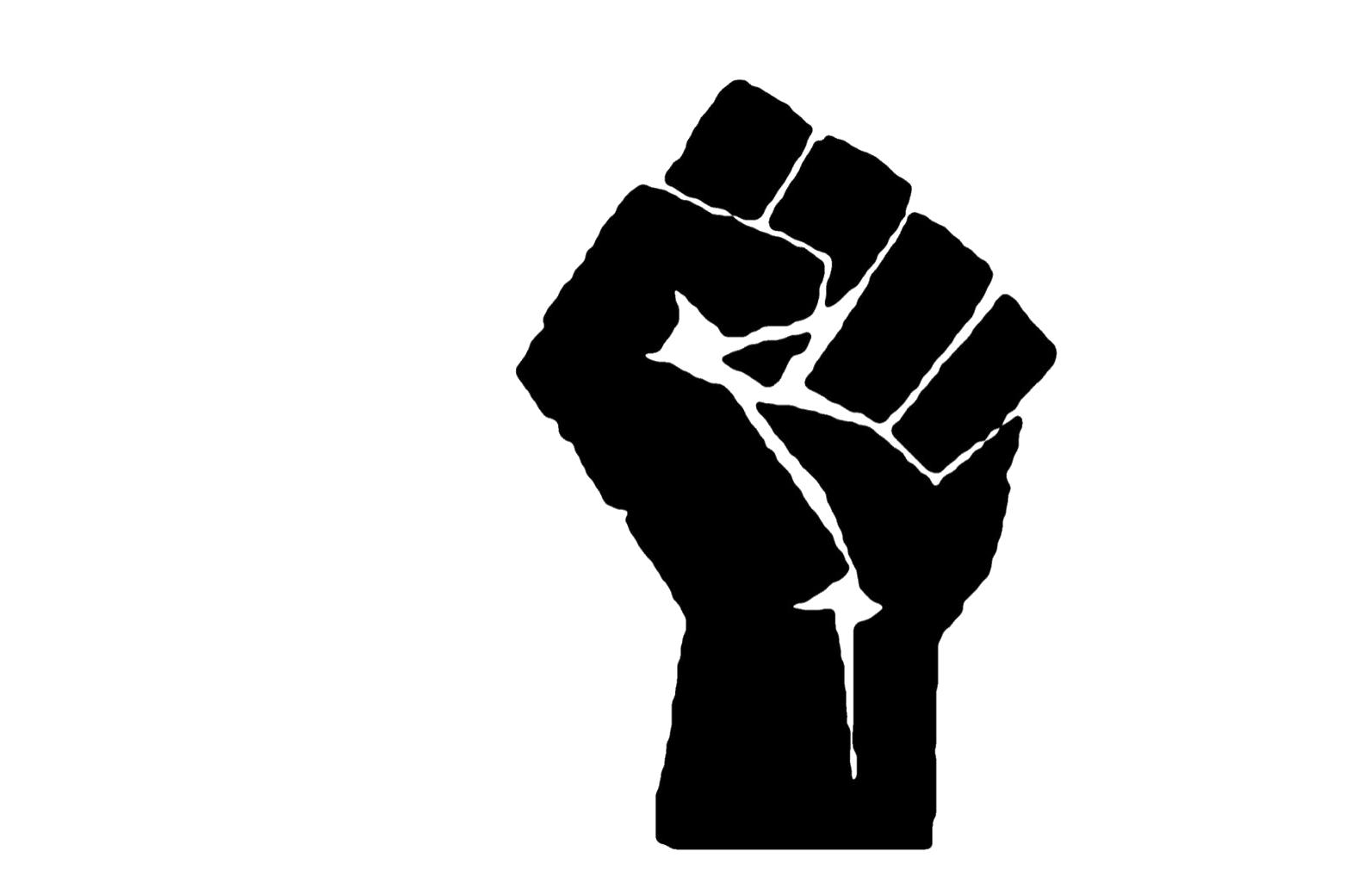
Being More and Doing Good AS A CRIMINAL JUSTICE PROFESSIONAL
We cannot ignore that Black men and women continue to experience social injustices and brutality at the hands of law enforcement. But, not all law enforcement professionals are bad. Countless extraordinary men and women in the field want nothing more to help a fellow human being during what is likely one of the most tragic and chaotic moments in their life. The amount of training and education a prospective law enforcement professional receives is key to how they will likely treat others in the field. Olivet College’s criminal justice program is regarded as one of the best in the state of Michigan, with social justice and relationship building embedded in the curriculum. Students are required to take courses that focus on racial, ethnic and gender inequalities. They have honest discussions on diversity, equity and fairness with faculty members who have worked as law enforcement professionals. They reflect on why people are treated differently and how these interactions can be improved. Students also dig deep into why they want a career as a criminal justice professional. Graduates of the Olivet College criminal justice program are sought after by local and county law enforcement agencies and routinely finish at the top of the Michigan State Police Academy. For Olivet’s graduates, it’s about compassion, empathy and integrity. It’s about being more than brave or courageous; it’s about doing good for others every day. Three Olivet College alumni who are criminal justice professionals shared an inside perspective on how they strive to be a catalyst for positive change in their communities and how they live the College’s mission today.
